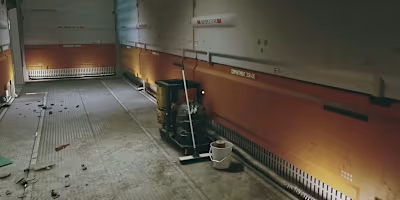Writer's Block is a Myth—THIS is the Real Reason You're Stuck

Writer’s Block is a Myth — THIS is the Real Reason Why You’re Stuck
And it’s completely within your control to fix.
5 min read
·
Oct 2, 2023
I see you.
You’re perusing Medium again when you should be writing, aren’t you?
You have a project or a draft that is just nagging at you, but you can’t find the motivation to do it.
Trust me when I say I’ve been there. I suffered from debilitating writer’s block that had me staring at blank documents for hours and making zero progress on any of my projects, even though I wanted nothing more than to make writing my career.
I knew I needed to change. And I started by shifting my mindset around what was actually “blocking” me from writing.
What IS Writer’s Block, really?
We’re talking about that frustrating feeling when the words just aren’t flowing the way they should be.
But “writer’s block” is a useless term. Throw it out.
It’s not descriptive enough. It frames your lack of writing progress as something outside of your control, something that just happens to you — like an affliction.
In truth, it’s a direct result of your mindset, habits, and mental blockages. And these are 100% your responsibility to fix, and well within your control.
In order to get to the root of this thing we call “writer’s block”, you need to get specific about what is actually blocking you.
Maybe you feel you’re lacking motivation or ideas. Or maybe you have too many ideas, leading to decision paralysis when you try to figure out what to write about.
Maybe your story is full of plot holes you don’t know how to fix, or your blog post is all over the place.
Maybe the process of writing itself feels grueling and frustrating, and you lack the discipline to keep your ass in the chair and get the work done.
I’m going to make this very simple — what underlies all of this, very often, is fear.
You feel blocked because there’s something you’re afraid of.
Getting to the Heart of Your “Block”
To fix the problem, we need to clearly diagnose the problem.
You need to clearly identify the reason you’re blocked, by identifying what you’re afraid of. Ironically, the best way to figure out what’s blocking you from writing is by…writing.
I’m an advocate for keeping a writing journal. This is a space where you dump out all your fears, doubts, and grievances before your writing session. I learned this from a wonderful book called The Artist’s Way, and the author Julia Cameron calls them “morning pages”. Some people call this process a brain dump or brain drain.
Call it whatever you like — I call it essential.
Get a journal and a pen and write whatever comes to mind. Check in on yourself and reflect on your writing progress, or lack thereof. Jot down what you want to get done today and what concerns are holding you back from doing so.
Don’t judge whatever comes out; if it sounds fearful and whiny and full of complaints, you’re doing it right. You might surprise yourself with what comes out.
When I did this process consistently, I uncovered fears I didn’t even know I had. What looked like a lack of motivation or discipline on the surface was actually a deep worry that whatever I was working on was not worth dedicating the time and effort.
“I can’t make the time to write” might actually be “I’m scared I’ll waste time writing a book no one will read” in disguise.
“I’m struggling to get through this draft” might be hiding “I’m worried I’m not actually as talented as I’d hoped”.
Identify it. Talk yourself through the block. Write yourself through the block.
Getting Un-Stuck
So you’ve got your fears and worries out of your head and onto the page. Great! Now what?
Here’s the part where we talk about habits.
Often when we talk about having a writing process, we think of this as coming down purely to discipline. But discipline alone won’t get you the results and the flow that you want.
I’ve found that building a sustainable writing habit comes down to two things: discipline, and something I like to call creative ease.
If you allow your writing sessions to be fun and fulfilling by following your genuine interests and curiosities, you’ll find you actually need less discipline than you think. The motivation to write will be intrinsic.
What does this actually look like in practice? For me, it means I have a dedicated block of time that I set aside for writing, and a specific word count goal for the day. That’s discipline.
But within those constraints, I use the time to explore ideas and chase what fascinates me, without judgment. I work on what feels easy, fun, and interesting moment-to-moment so I never break my flow, and I never stop enjoying myself while writing.
Consistency in writing relies on a delicate balance of both; too much rigid discipline and you’ll suck the joy out of what should be a joyful process. Too much ease and you’ll lack the structure you need to actually finish projects and put your work out into the world.
Discipline gets you up in the morning and gets your ass in the chair, but following your creative urges is what keeps you coming back day after day, and what gets you into that beautiful state we call flow.
Overcoming the dreaded writer’s block is all about getting to the root of your fears and negative beliefs around writing. The next step is trusting your creative self, trusting that the time you dedicate to your writing is time well-spent, and learning to honor your process and constraints while allowing yourself to flow and explore within them.
Much love and happy writing.
Like this project
Posted Jun 3, 2025
Published an article on overcoming writer's block by addressing fears and building sustainable writing habits.
Likes
0
Views
0
Timeline
Oct 1, 2023 - Oct 1, 2023





